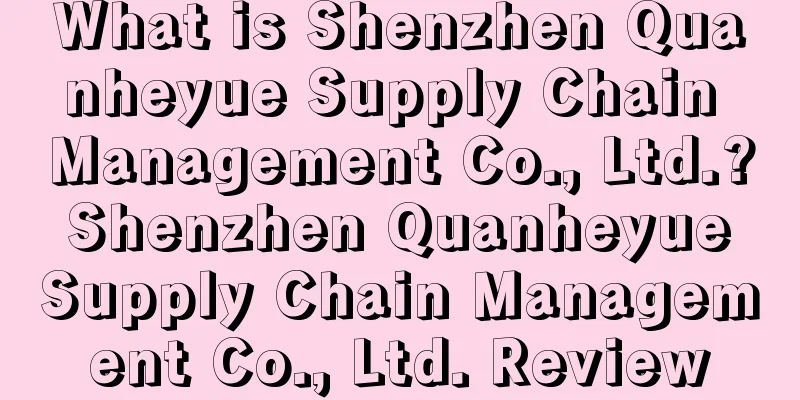Broken entrepreneurial dream: Two people started Amazon together, but now their relationship has completely broken down! How can I protect my own interests? What should I pay attention to in the content of the share agreement?

|
Situation summary: Two people were partners in starting Amazon, and now their relationship has completely broken down. I am willing to withdraw and let the other party buy out my shares. At present, I have control over my account password, mobile phone email and other information, and the withdrawal process has not been negotiated yet. The other party requires me to hand over my account password and other information first, then sign an agreement (it is also possible to sign the agreement first, but the agreement also stipulates that I must hand over my account password and other information first), and then pay money to buy out my shares. I asked to pay first, then sign the agreement, and then hand over the information. What I thought was that if the other party asked me to hand over the information first, I would be kicked out. Even if there was an agreement, if the other party didn't give me the money, I could at most sue him, and if I won, he could be a deadbeat. This is a gamble on the probability that the other party will abide by the agreement. I don't trust the other party at all now. I can never accept this approach. I can only accept paying first and then handing over the goods, or I can stay there for a day and hand over the goods at the same time.
"Wonderful Reply" enersto Before giving a specific answer, a core point is this: Partnership Agreement/Articles of Association + Stock Withdrawal Agreement are the core to solving this kind of problems in a reasonable and well-founded manner. Any behavior that precedes the Stock Withdrawal Agreement (or violates the Partnership Agreement/Articles of Association) will put oneself in a passive position. (1) If I really follow the other party’s suggestion and hand over my account password first, with only an agreement in hand, is that a big risk?
However, before you use this kind of rhetoric, you should understand that if he does not pay, the economic investigation department will most likely dismiss the case as a civil dispute . This is not a core killer and is only suitable to be used as a gambling tool. In addition, be careful not to use means other than litigation and calling the police as a tool to pressure him to fulfill his contract, otherwise you will be accused of blackmail. Anonymous user 1. According to the other party's proposal, you should hand over your account password first. There is only an empty agreement, which is extremely risky and will cause both money and the store to lose money. The original poster's description is that there is only an "empty" agreement. Your analysis is very clear. Even if you sue the other party according to the agreement, you will have no way to get back the money. There are so many private lending/company disputes/investment failures in the private sector. Don't even think about passing this plan; Sunny Old Boy
The most critical issue is the store's value. If you can make a profit of 100,000 yuan a month, or about 1.5 million yuan a year, it is not a matter of buying back your shares. You need to value the store and brand. Under normal circumstances, you need to be conservative and have more than 1 times the bargaining space and compensation. Anonymous user Personally, I think that in a situation like yours, where you are on guard against each other and worried about each other playing tricks on each other, I suggest that after you have signed the agreement and both of you agree on the content of the agreement, you go to the local notary office and find a lawyer or something in the notary office to have a notarized certificate made on the spot. This way, the agreement will also be backed up at the notary office. The notarization fee is not high, ranging from a few hundred to a few thousand. Basically, buying and selling houses and inheritance of property all require going to the notary office. In this way, after your agreement is filed with the notary office, if the other party does not follow the agreement or fails to do so within the time limit, legal action will be very efficient. If you do not go to the notary office, you can also find a lawyer to do on-site certification. 189284** Hello! 1. Generally, the agreement is signed first, and then the agreement stipulates how to hand over the information and make the payment. I think you can pay and hand over at the same time after signing (you can pay in two installments), or you can ask a lawyer to be present. 2-3. There is no good way to get the other party's ID card copy, common delivery address, communication records, recordings, etc., so that there will be evidence in the real lawsuit. I don't know how much money there is. If the real lawsuit is enforced, the other party will not pay and will be restricted and lose credibility, but he doesn't care. Bread Lady 2024
After sorting out the first five points and confirming with the other party that they are correct, work out a plan, ask a lawyer to make an agreement, and both parties confirm to sign and seal it. Anonymous user 1. Both parties sign an agreement, hand over the money and the account information 3. When handing over the account, confirm the account status and agree that you will not be responsible for the risks of the subsequent account. It does not matter whether you make a note when transferring the money. Confirming that the money has been received is enough. 4. The content of the agreement can refer to the contract agreement similar to the one for buying a service provider account.
White, fat and cute This has nothing to do with Amazon or not. The account information is in your hands, and you have the initiative and bargaining chips. Once you give it to the other party first, it is equivalent to handing over the initiative and choosing to trust the other party. If the relationship is completely broken, if you are still willing to trust the other party, then do it. Anonymous user Bullshit, when both parties sign a contract, the contract should state the completion time of the handover, and then give the account and password. Otherwise, when signing the contract, write a time agreement for the connection account and password.
|
Recommend
Amazon and Walmart compete in North American retail market! Who is the real winner?
According to news, it was reported not long ago th...
U.S. e-commerce sales increased 7.5% year-on-year in Q3, and its share of total retail sales continued to rise
It is learned that recently, according to foreign ...
Sales soared 76%! This track continues to heat up in 2022!
<span data-docs-delta="[[20,"获悉,根据D2C平台Uni...
Meta's stock price has plummeted by more than 60% this year! Zuckerberg's net worth plummeted after Facebook changed its name
<span data-docs-delta="[[20,"今年Meta股价已暴跌超6...
Prime Day report: some sellers have huge orders, some have zero orders! Chinese sellers dominate Amazon!
Written in front After waiting for a long time si...
Some insider information about BD reporting by service providers. How to do Amazon business safely in 2022?
The principle of the service provider reporting t...
After a year of excess inventory sales, Target sticks to its low inventory strategy in 2023!
With inventory down 16% year-over-year by the end ...
To get Amazon's flash sale recommendation, you must meet the following conditions!
In recent years, Amazon has been stricter about c...
Home Depot's Q4 revenue was $39.7 billion, up 14.1% year-on-year
It is learned that on February 25, the US home fur...
No delivery during important holidays! Amazon and many other US companies announce suspension of operations
It is learned that on May 30, the United States wi...
What are the common and alternative routines and methods for Amazon keyword research?
Amazon is a search engine, and search engines wor...
What is eClincher? eClincher Review
eClincher enables you and your team to accelerate ...
The US and Europe are on strike again! Delivery at these stations will be affected...
The big promotion just ended. News of strikes in v...
Peak season is approaching, and 51 million Americans have already started or are planning to start shopping!
It is learned that according to a new study by the...









